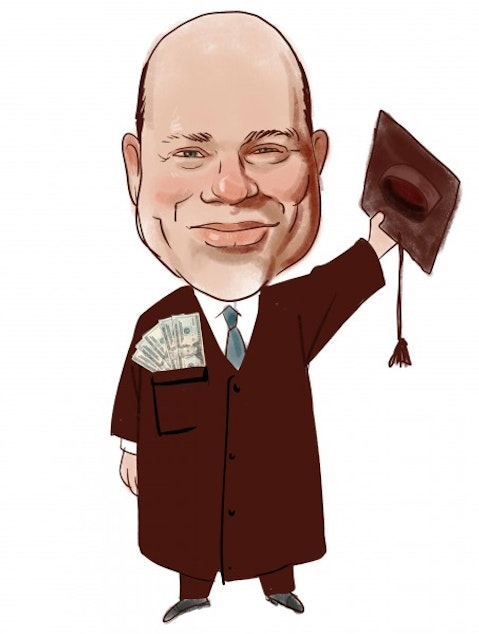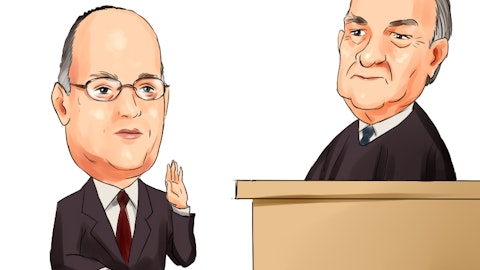David Tepper Tells CNBC His Market Concern is Alleviated (BusinessWeek)
Billionaire hedge-fund manager David Tepper, who said last month that he was nervous about financial markets because the economy wasn’t growing at a sufficient pace, said his concerns have been alleviated. The founder of $20 billion hedge-fund firm Appaloosa Management LP made the comments today in an interview on CNBC, according to its website. Tepper, 56, told an audience at a Las Vegas conference on May 14 that the market is “is kind of dangerous in a way” and that investors shouldn’t be too optimistic about rising markets and that they should hold cash.

Sebi bars hedge fund in L&T Finance insider trading case (MoneyControl)
Unearthing a major insider trading case in shares of L&T Finance , Sebi today barred a Cayman Islands-based hedge fund from Indian securities markets, while the role of other entities including some employees of investment banking major Credit Suisse Group AG (NYSE:CS) are also under scanner. This hedge fund, Factorial Master Fund, traded in derivative contracts of L&T Finance with Offshore Derivative Contracts (commonly known as P-Notes) through five different FIIs (Foreign Institutional Investors) — namely Macquarie Bank, Goldman Sachs Singapore, Merrill Lynch CM Espana, Nomura Singapore and Citigroup Global Markets Mauritius Ltd — in an “aberrant and suspicious” manner.
John Paulson’s Hedge Funds Said to Rise in May on Stock Rally (Bloomberg)
Most of billionaire John Paulson’s hedge funds rose in May as stocks rallied and bets on mergers and credit paid off, according to a person briefed on the returns. The Paulson Partners Enhanced fund, a merger arbitrage strategy that uses leverage to amplify gains, rose 1.9 percent last month and 4.8 percent year to date, said the person, who asked not to be identified because the information is private. The Credit Opportunities Fund gained 1 percent in May and 7.4 percent this year. The New York-based firm, which oversees $21.4 billion, suffered losses in its event-driven strategy, the only one of its main strategies to post losses, as positions in gold miners decreased, the person said. The Paulson Advantage Plus fund, which employs leverage, dropped 3.7 percent in May and is down 2 percent this year.
More Hedge Funds Take Up the Activist Playbook (BusinessWeek)
The struggles of the hedge-fund industry have been no secret, and they continue to underperform the stock market while charging investors high fees for the privilege. With the Standard & Poor’s 500-stock index gaining in all but four of the last 24 months, it’s been difficult to evaluate whether hedge funds offer superior returns in bear markets as their (possibly dwindling) supporters claim. There’s just been a drumbeat of pathetic results. One area that’s been somewhat of an exception is activist hedge funds—those that buy a stake in a company and then agitate for changes like acquisitions, board shakeups, or returning cash to shareholders…
Warren Buffett’s charity lunch auction bid tops $1 million and may rise (Gnom)
Warren Buffett’s annual auction to benefit a San Francisco charity has drawn a bid of more than $1 million, surpassing last year’s top offering, with a day of bidding remaining for a chance to eat lunch with the billionaire investor. The $1,000,300 high bid is for the 15th annual auction to benefit the Glide Foundation, which provides food and services to the poor and homeless. The high bid often surges in the last hour or two before the auction on eBay Inc (NASDAQ:EBAY) closes. The auction ends Friday at 10:30 p.m. EDT (2:30 a.m. Saturday GMT).
This has been a bad hedge fund “trend” (CNBC)
One of the largest hedge funds in the world, BlueCrest Capital Management’s BlueTrend, is trying to put its worst year ever behind it with positive returns, but it still faces challenges convincing investors to stay. BlueTrend is up 3.34 percent net of fees this year through May, according to a person familiar with the returns. The fund swung to a gain after rising 6.32 percent last month by correctly predicting bond and stock price movements. That’s already far better than the fund’s poor performance in 2013 when it lost 11.5 percent—its first negative calendar year since launching a decade ago.





